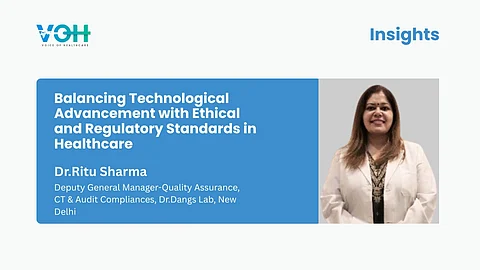

Balancing technological advancement with ethical and regulatory standards in healthcare requires a multi-faceted approach-one that involves maintaining traceability and accountability while safeguarding patient well-being, safety, privacy, and security. To effectively navigate the complexities of integrating AI into healthcare, a comprehensive framework is essential. This includes establishing clear guidelines, fostering transparency, prioritizing data privacy, promoting fairness, and ensuring accountability in the development and deployment of new technologies.
Significant work is underway both nationally and internationally to facilitate the seamless integration of AI in healthcare. The Government of India has launched several initiatives to ensure the ethical deployment of AI technologies across sectors, including healthcare. One notable example is the collaboration of NITI Aayog with IBM and Microsoft, which focuses on joint research, skill development programs, and the implementation of AI solutions to enhance healthcare delivery.
While the integration of AI in healthcare holds great promise, it also presents challenges—especially concerning ethics, patient safety, data management, and regulatory compliance. Addressing these issues is crucial to protect patient interests and uphold healthcare standards. Regulatory bodies worldwide are actively responding: the US FDA has issued guidance documents specifically addressing the use of artificial intelligence (AI). Another significant international milestone has been the enactment of the General Data Protection Regulation (GDPR) by the European Union in 2018.
India's Digital Personal Data Protection Act (DPDP Act, 2023) similarly enforces strong privacy standards for patient information and outlines regulatory criteria for AI model developers and deployers, particularly regarding the scope and processing of personal data. Additionally, the European Commission introduced the Artificial Intelligence Act (AIA), aimed at mitigating risks associated with widespread AI adoption. The World Health Organization (WHO) has also contributed by publishing guidelines on digital health interventions (2019) and the ethical use of AI in medicine (2021).
As the regulatory landscape evolves to keep pace with rapid technological change, the focus must be on building robust governance frameworks that ensure the responsible use of AI in healthcare. A truly comprehensive approach—combining sound regulations, ethical practices, quality data governance, patient education, and healthcare workforce training—will enable the safe, effective, and ethical integration of AI into the healthcare ecosystem.